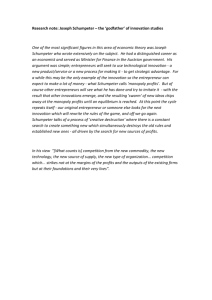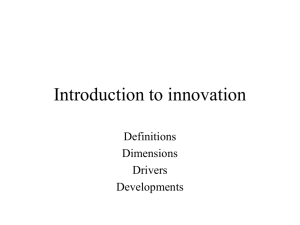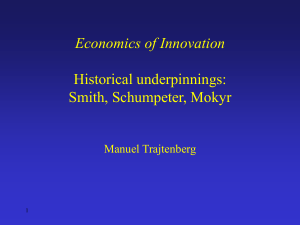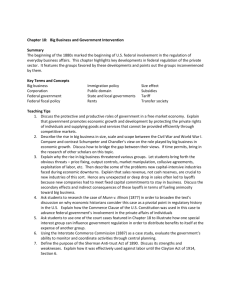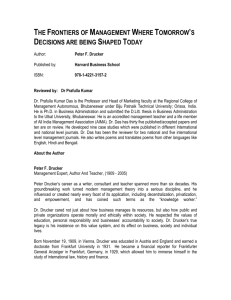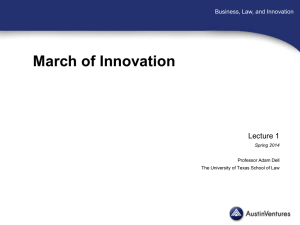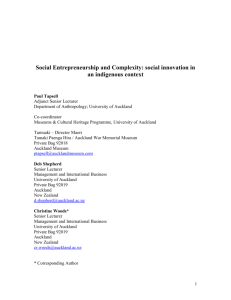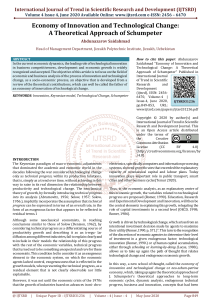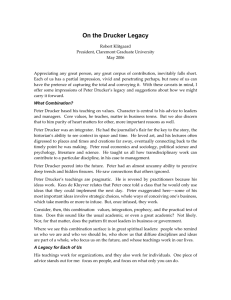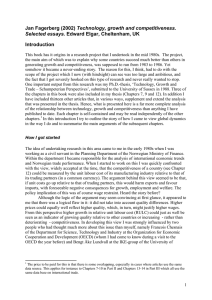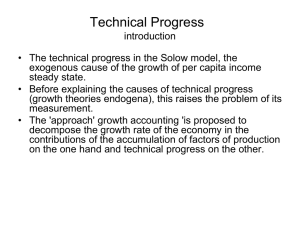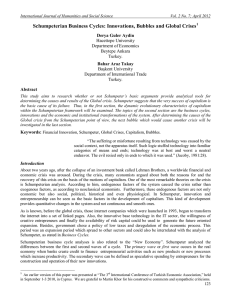Surfing the Past Online Resources for Teaching the History of
advertisement
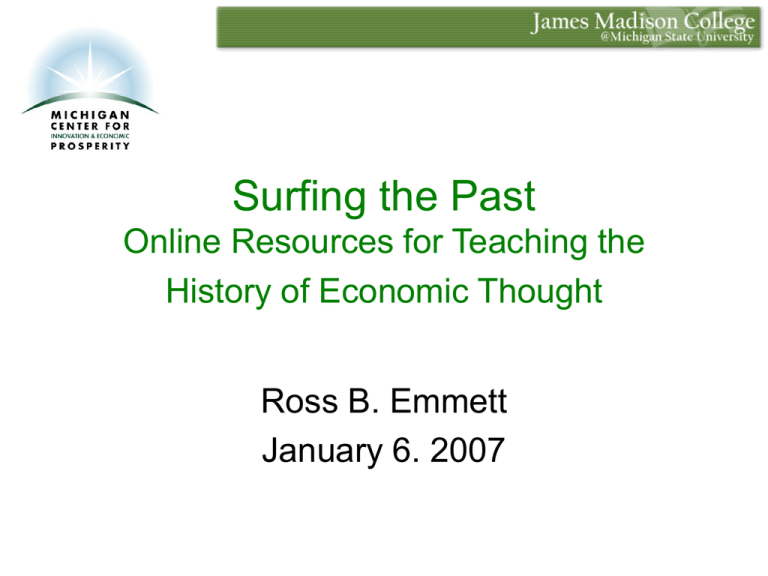
Surfing the Past Online Resources for Teaching the History of Economic Thought Ross B. Emmett January 6. 2007 1 Student Search on “Schumpeter” Wikipedia article on “Joseph Schumpeter” 2 Student Search on “Schumpeter and innovation” EconLib bio of Schumpeter 3 Wikipedia article on “creative destruction” 4 Student Search on “20th century innovation” Ideafinder “20th Century Innovation Timeline” 5 Student Search on “20th century innovation theory” Found Davis & North “Institutional Change and American Economic Growth” (1970) but didn’t think it relevant 6 Found Mowery & Rosenberg Paths of Innovation: Technological Change in 20th Century America (Cambridge Univ. Press, 1998): MSU has E-Book rights, so student started reading it online. 7 Cliometrics Society member bio for Tom Nicholas Eh.Net search on “innovation” JEH Article: Why Schumpeter was Right Student did not use MSU rights to article: gave up because he would have to pay for the article “At this point I feel I have sufficient information to write a paper on the topic of 20th century innovation. I would begin the paper with the ideas discussed in Paths of Innovation and incorporate Schumpeter’s Creative Destruction theory into the paper near the midpoint. If I find I need to do additional searches to help clarify my work, I believe I would begin at either www.books.google.com or www.scholar.google.com” What would you do to help this student improve his search and find resources appropriate to a paper on Schumpeter’s views on innovation in a capitalist society? Answer 1: Go the Library! • Library catalog is online! • Electronic resources of library are available anywhere • Google Scholar will find articles, and your library permissions will give you access • Google Book may give you access to the whole book • Internet provides far easier access to the “general knowledge” about a topic than traditional library searches: Google & Yahoo. Answer 2: Read Schumpeter! • Hard to do online • McMaster HET Archive has one article by Schumpeter, not relevant to innovation theory • http://socserv.mcmaster.ca/econ/ugcm/3ll3/ • But many earlier economists are readily accessible online at McMaster site and here: • EconLib: http://www.econlib.org/library/classics.html • Marx: http://marx.org/ • História do pensamento econômico: http://www.pensamentoeconomico.ecn.br/ • Charles Gide Association: http://www.charlesgide.fr/ Answer 2b: Read More About Schumpeter • New School University site has lists of sites with material about Schumpeter, and many more economists or schools of economic thought: http://cepa.newschool.edu/het/ • And then standard electronic resources of library Answer 3: Broaden or Narrow Search Have you taught students how to do searches? A History of Economic Thought course is an excellent course in which to have library staff teach “information literacy” for economics students Answer 4: Have Students Construct Website as Part of Research Assignment If you can’t stop them, put them to work for you! Have them assemble a website/blog that deals with the person or topic in the history of economic thought that they are researching. Use student presentations, or peer-review of websites as means of improving the resources they gather. http://www.msu.edu/~emmettr/fhk/ Answer 5: Add context & images • Library of Congress • Eh.Net • Global Price & Income History Group • Duke’s Gallery of Economists • Roy Davies’ History of Money site • Peart & Levy’s Secret History of the Dismal Science • And more like them! World Bank Celebration of Bretton Woods Fleeming Jenkin’s image of the circularity of trade A Few Other Sites You Should Know About HES Adam Smith Lives! A History of Economic Thought Blog Email List The Economists’ Papers Project, Special Collections, Duke University Library Harvard’s Baker Library, Kress Collection & Special Exhibits
